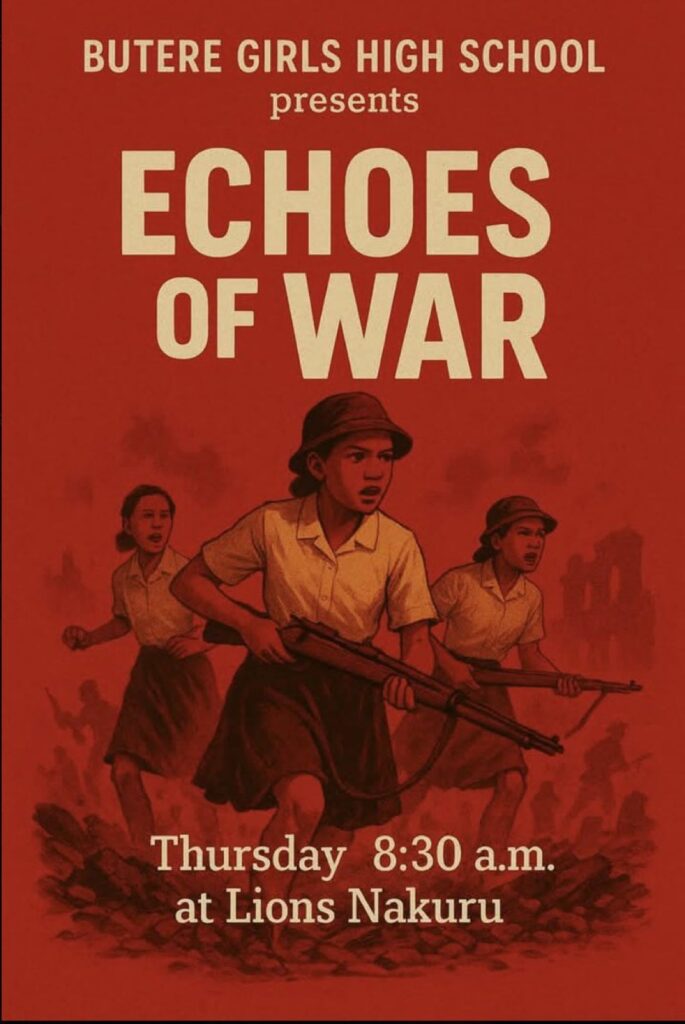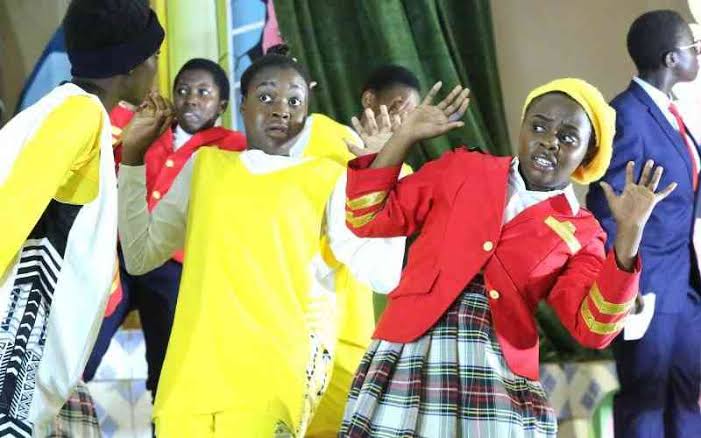‘Echoes of War’ How Butere Girls’ High School Defended Art and Free Expression in Kenya’s Drama Festivals 2025
The year was 2025. Nakuru hosted the Kenya National Drama and Film Festival, a place where aspirations met their potential. Instead, a hush fell. The students of Butere Girls’ High School chose not to perform “Echoes of War,” a play that had generated a lot of excitement. This emotional demonstration sent a ripple of surprise throughout Kenya, effectively restarting a nationwide discussion that examined the role of artistic expression, the limits of censorship, and what it truly means to have freedom of expression.
The Rise of Echoes of War
Butere Girls is no stranger to controversy. The school has a decorated history in the performing arts, known for its bold themes and unflinching storytelling. In 2013, their play “Shackles of Doom” sparked national debate for tackling tribalism, social inequality, and corruption. Now in 2025, “Echoes of War” a powerful play scripted by politician and former National Drama Festival champion Cleophas Malala, was meant to echo similar themes: the scars of war, political betrayal, and the cry of a nation longing for peace.

Described as the “Kenyan Sarafina!” moment by some on social media, the play had already garnered widespread attention and excitement. But what happened in Nakuru was a chilling reminder of the challenges that still face the arts in Kenya.
From Rehearsals to Repression
All seemed well until the final moments before the scheduled performance. Reports indicate that Butere Girls’ students were denied access to the public address system and the performance venue was allegedly surrounded by heavy police presence. Eyewitnesses and videos from X (formerly Twitter) showed over 300 police officers lining the streets, tear gas being lobbed, and chaos breaking out near the performance zone at Nakuru’s Nyayo Gardens.
Adding fuel to the fire, Cleophas Malala’s playwright and mentor to the drama team, was detained by authorities. His car was surrounded, and he later tweeted:
“I am now being arrested for scripting a play, Echoes of War. Shame!!!”
His arrest sent a strong message to the cast and the country. The Butere Girls drama team, in a courageous act of solidarity, refused to perform without their director and without an audience to witness their truth.
A Student-Led Stand for Art
The walkout wasn’t just a protest, it was a statement. As students from other schools joined in and refused to perform, chants of #RutoMustGo echoed through the venue, signaling a deeper unrest beyond the drama festival. Social media exploded with support for the students:
- “Good work Butere Girls! Art is not a crime.” – @lynn_ngugi1
- “Kenya’s Sarafina moment! God bless the children.” – @OAmollo
- “Neither students nor teachers shed their constitutional rights at the schoolhouse gate.” – @Kenyans
As one X user poignantly noted, “Art has power!!” And Butere Girls proved it.
Political Silence and Public Outrage
Interestingly, one of Butere Girls’ most prominent alumni is none other than Rachael Ruto, the First Lady of Kenya. Her silence on the matter has been widely criticized, with some accusing her of selective support for the school and its legacy.
“The most famous alumni of Butere Girls is Rachael Ruto, but she has not said a thing!! Or does she only visit the school when it fits her PR needs?” – @hon_Makau
Even as police were accused of censorship and intimidation, government officials offered no clear explanation for the disruption. Malala’s lawyer, Ken Echesa, confirmed that the former senator remained in custody hours after the play was due to be performed.
Remembering Shackles of Doom

For many Kenyans, this isn’t the first time Butere Girls has faced resistance. Shackles of Doom, which was banned in 2013 before being reinstated by a court order, tackled sensitive themes of corruption and ethnic inequality. That case opened a national conversation on the role of drama in challenging systemic injustice. Echoes of War seems to have picked up the baton, courageously confronting similar issues in modern Kenya.
As one commentator wrote,
“History has a way of repeating itself, especially when it comes to matters of freedom and the arts.”
An Inspiring Moment for Future Generations
What the Butere Girls drama team did in Nakuru wasn’t just a boycott, it was an act of bravery. These students chose principle over recognition, truth over applause, and solidarity over silence. In doing so, they have carved their names into Kenya’s cultural and educational history.
They reminded us that the stage isn’t just a place for entertainment, it’s a battleground of ideas, a mirror to society, and a sanctuary for voices that demand to be heard.
As drama teacher Peter Pages Bwire wrote:
“Butere Girls have left without performing in Nakuru.”
But in reality, they performed something far greater. They staged a live demonstration of courage, conviction, and the unyielding spirit of art.
Conclusion: Art Will Always Find Its Voice
While authorities in Nakuru might have aimed to suppress “Echoes of War,” the outcome, surprisingly, was quite the opposite. Even though the play didn’t reach the stage as intended, its resonance has undeniably spread throughout Kenya.
From the widespread use of #EchoesOfWar to the sudden eruption of protest songs, and further still, from the outpouring of online solidarity to global comparisons with landmark free expression battles, Butere Girls’ experience has managed to transform an instance of censorship into something more significant: a moment of nationwide realization.


